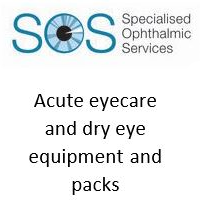Professional Matters Optometry & Dispensing
Optoms, should remain in control of clinical care
Optometrists should remain in control of clinical care throughout the sight test
AOP member views on delegation and how clinical care within the sight test should remain with the optometrist
Clinical care throughout the sight test should remain the responsibility of the optometrist to ensure best patient care, say members of the Association of Optometrists (AOP).
Expressing their views on delegation in the sight test as part of the latest response to the General Optical Council’s (GOC) call for evidence on the Opticians Act, AOP members cited ‘missed pathology’ and ‘inconsistent care’ as reasons that refraction is an inseparable part of the sight test.
Carolyn Ruston, Policy Director for the AOP said: “Ensuring eye disease is detected and referred appropriately by having the right systems in place is a reoccurring theme we’ve seen throughout this evidence gathering process. It’s clear our members understand the importance of providing all clinical aspects of the sight test, including refraction, to deliver better care outcomes for patients.”
The AOP has been asking members to share their views via it’s community forum online, to help inform it’s response to the GOC.
Delegation in the sight test received a high level of responses – as did the previous topic of separating the sight test into a refraction and eye health check.
Ms Ruston thanked those who have contributed: “We’re grateful to have such high levels of engagement with these important topics which is giving us a strong view about how practitioners think the sight test should be regulated in the future.”
“If you haven’t already shared your opinion there is still time to do so.” Ms Ruston added.
The AOP is now surveying members on key topics to further inform its final response to the GOC -members can respond until the 4 July.
The regulator launched its 16-week call for evidence in March with optical registrants, sector bodies, employers, patients, and the public all asked to contribute.
The call for evidence will close on 18 July 2022 and submissions to the consultation can be made to the GOC via its online form.
Practitioners can learn more about the topics, what the AOP is doing and how to get involved on the AOP website.
























